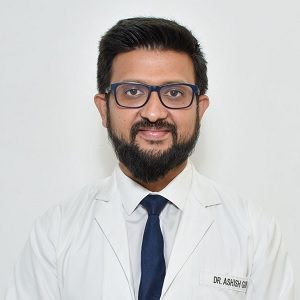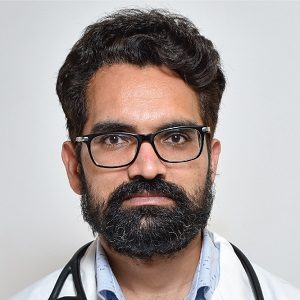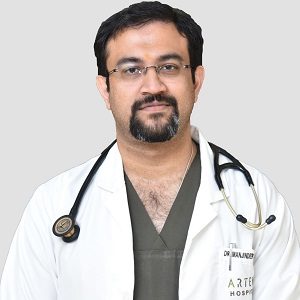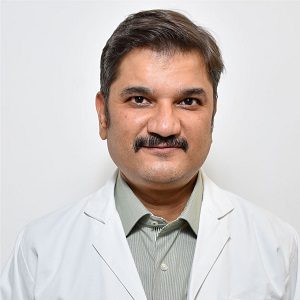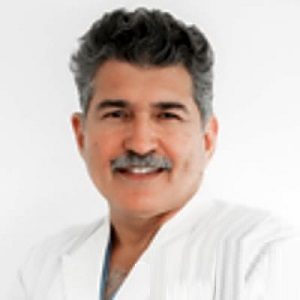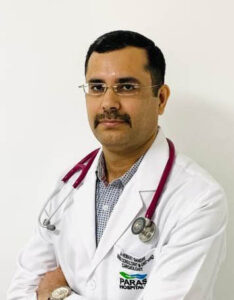Best Radiofrequency Ablation Doctors in India
- Cardiologist, Gurugram, India
- Over 15 years’ experience
Profile Highlights:
- Dr. Ashish Gupta is a renowned cardiologist in Gurugram with expertise in noninvasive and interventional cardiac procedures.
- He performed several life-saving primary angioplasties in acute heart attacks, complex heart interventions, and ICD/ CRT/ pacemaker implantations with a high success rate.
- Some of the services available with the doctor include PET scan, Nuclear Thallium Test, TMT, Holter monitoring, echocardiography, etc.
- Interventional Cardiologist, Gurugram, India
- Over 10 years’ experience
Profile Highlights:
- Dr. Jagdeep Yadav is one of the best cardiac surgeons in Gurugram. He is particularly interested in non-coronary therapies such as peripheral interventions and device closures.
- Dr. Jagdeep Yadav is skilled in using modern techniques in interventional cardiology and non-invasive cardiology procedures. He employs cutting-edge technologies such as IVUS, OCT, FFR, and IVL to make life better in complex cardiac therapies.
- Cardiologist, Gurugram, India
- Over 15 years’ experience
Profile Highlights:
- Dr. Sanjat Chiwane is an MCI Certified young cardiologist in Gurugram.
- His career success measured 1200+ coronary angioplasties, 100 Balloon mitral valvuloplasties, and 100 renal angioplasties.
- Continuing with his meticulous career, the doctor also worked as a Clinical Instructor in Medicine and Cardiology at Mumbai University. He added Organ Transplantation to his expertise.
- Cardiologist, Gurugram, India
- Over 16 years’ experience
Profile Highlights:
- Dr. Kuldeep Arora is a promising cardiologist in Gurugram. He is a specialist in radial angiography and angioplasty.
- Dr. Kuldeep Arora has expertise in Interventional Cardiology and performed around 12,000 therapeutic cardiac interventions.
- He also assisted with the device closure of atrial septal abnormalities, Pacemaker implantations, ICD, and CRT, besides management of heart attacks.
- Cardiovascular Surgeon, Cardiac Surgeon, Gurugram, India
- Over 32 years’ experience
Profile Highlights:
- Dr. Vijay Kohli is one of the best cardiac surgeons in India. He has brought an evolution in the spectra of Cardiac Surgery, wherein, he was the first leading surgeon to perform CABG on a beating heart in Kathmandu, Nepal.
- Vijay Kohli performed the first coronary artery bypass surgery in Jammu Medical College in 2001.
- Additional Director Cardiology
- 15 Years Experience
Profile Highlights:
Profile Snapshot of Dr. Hemant Gandhi
- Hemant Gandhi is a distinguished figure in the field of interventional cardiology with over 15+ years of extensive experience.
- He is recognized for his proficiency in handling cases involving congenital heart defects such as ASD and PDA, along with peripheral angiography, angioplasty, and balloon valvuloplasty.
- Gandhi holds the distinction of being the first D.M. (Cardiology) candidate to graduate from the prestigious PGIMER and Dr. RML Hospital, New Delhi.
- Beyond his clinical practice, he is actively engaged in the education and training of medical students in the specialized domain of Cardiology.
- His contributions to academia are further underscored by a significant number of publications that enrich the field with his insights and research findings.
Best Radiofrequency Ablation Hospitals in India
Radiofrequency Ablation
Radiofrequency Ablation is a minimally invasive procedure for destroying the nerve fibers that carry pain signals to your brain. It can provide relief to people who are suffering from chronic pain, especially in the lower back, neck or arthritis joints. If you are suffering from recurrent pain and you have experienced proper relief with a nerve block injection, you are likely a candidate for this procedure.
Also, termed as rhizotomy, this procedure uses heat for reducing or stopping the pain transmission. The procedure has several benefits, which include avoiding the need for surgery, immediate pain relief, very little recovery time, decreased need for pain medication, improved function as well as a quicker return to work and other activities.
Purpose
Radiofrequency ablation is able to help patients who are suffering from chronic low-back and neck pain, which is generally related to the degeneration of joints from arthritis.
The procedure is known to be quite safe and effective, with very few complications associated with it. However, the procedure is not suitable for everyone, such as people who have an active infection or bleeding problems. It is best to discuss with your doctor if you are a candidate for the procedure if you are considering it.
Preparation
Your doctor will first need to examine your medical history and previous imaging tests so that he/she can plan the best location for the ablation. If you have any questions, you should ask them to him/her.
Patients who take aspirin or a blood thinner may need to stop it for some days before the procedure is performed. It is best to discuss which medications you can stop and which ones you are able to continue.
Procedure
You will also need to take a few precautions for the treatment.
- Do not consume food within six hours of your appointment; however, you can have any clear liquids until two hours before the procedure is performed.
- If you are suffering from diabetes and use insulin, you will need to adjust the dosage of insulin on the day of your procedure. Your doctor will help you with this adjustment. Bring your diabetes medication with you so you will be able to take it after the procedure is complete. You should be able to take any other medications with a small sip of water unless your doctor recommended against taking them.
The procedure may or may not be performed using anesthesia. If anesthesia is not used, you will be awake and conscious during the procedure. First, you will need to lie on your stomach on the surgery table. If sedation is required, an IV line will be used for it.
Next, the skin over the treatment area is cleansed, so that any risk of infection is minimized. Then the physician numbs a small area of skin, by injecting a medicine for numbing the injection site.
Fluoroscopy might be used for directing the RFA needle towards the medial or lateral branch nerves. Once the needle tip is accurately placed, an active electrode is inserted through the needle. Then a small amount of electrical current is passed next to the target nerve, at a safe distance from the other nearby nerves.
After confirming the target nerve, a heat lesion is created using radiofrequency ablation. This process might be repeated for any additional nerves if required.
The procedure should not take over 90 minutes.
Aftercare & recovery
Generally, most patients are able to walk right after the procedure. After being monitored for a while, you are usually able to leave the office or hospital. You will need to book a cab or have a friend or family member drive you home.
Any pain from the procedure can last up to fourteen days, though this is generally due to the residual effects of the nerve ablation or muscle spasm. Within three days, you should be able to resume your daily activities. Though in around ten days, you should start seeing pain relief, sometimes, it might take around three weeks.
It is important for you to schedule a follow-up appointment with the doctor so that you are able to document the efficacy and address any remaining concerns that you might have for any future treatment or expectations.
Results
The pain relief should generally last from 9 months to over 2 years. If the nerve regrows through the burned lesion created by the procedure, the relief will last for 6-12 months.
If required, the procedure can be repeated.
Risks & complications
The risk of any complications from this procedure is generally low. Though infection and bleeding at the incision site are a possibility in some cases, they are quite uncommon.
Temporary side effects can include:
- Bruising and swelling at your incision site
- Weakness or numbness in the legs

